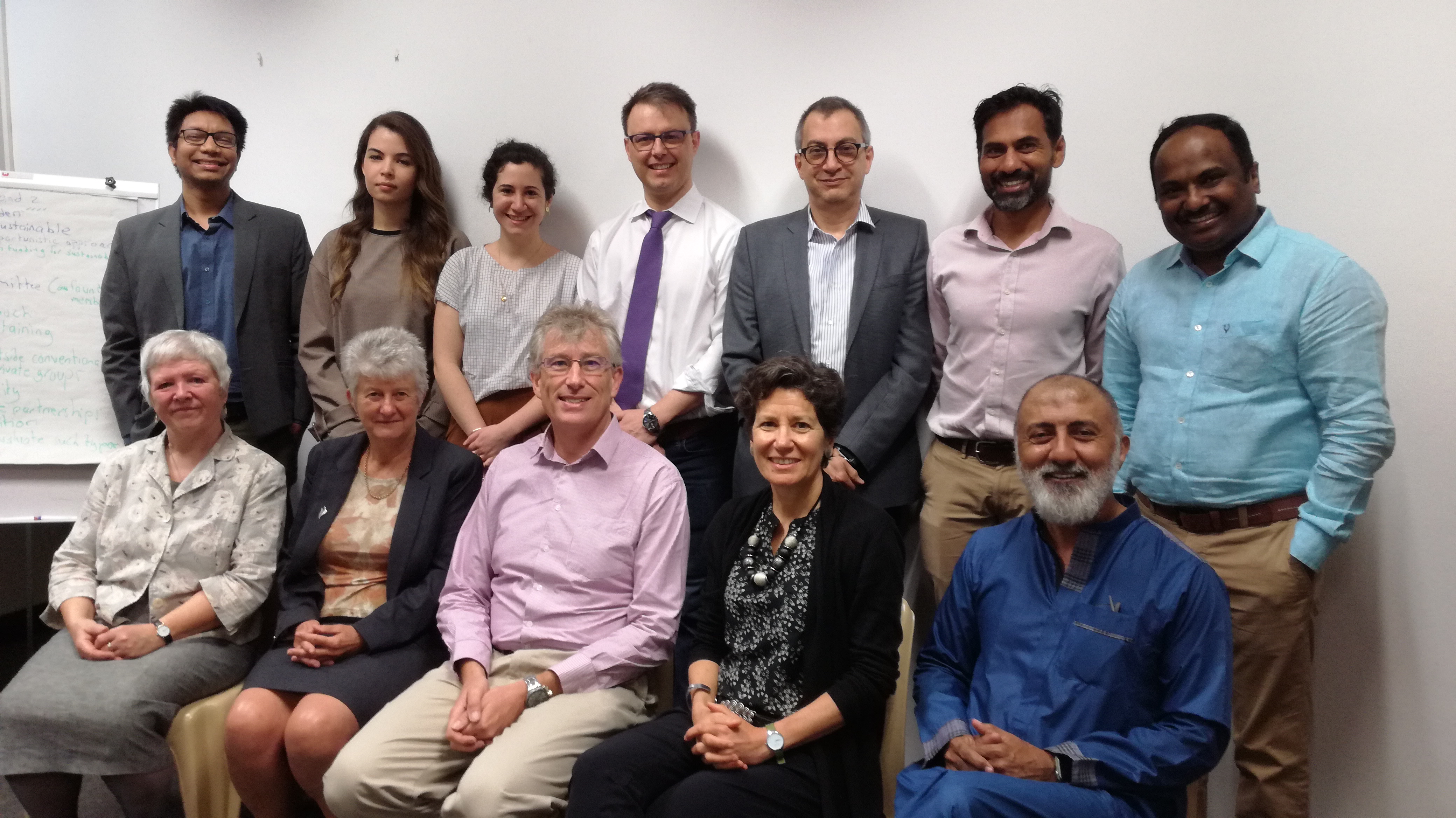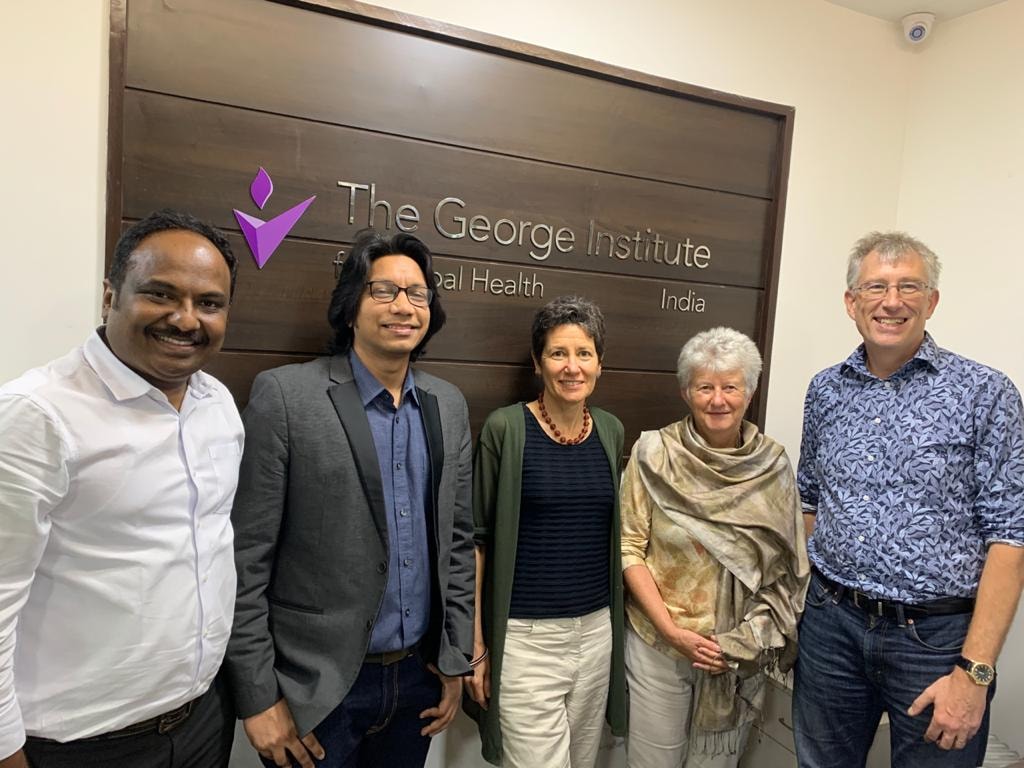Professor Bob Mash, head of the Division of Family Medicine and Primary Care has been appointed to chair a new global consortium, the Primary Health Care Research Consortium (PHCRC), which aims to promote high-quality primary health care (PHC) around the world through focused and relevant research.
The PHCRC – funded by the Bill and Melinda Gates Foundation – will, among other things, investigate key research pertaining to PHC, with a focus on low- and middle-income countries (LMICs).
The consortium aims to conduct “prioritised and policy-relevant research to support country and global efforts to build high-quality PHC systems in pursuit of universal health coverage and the Sustainable Development Goals".
It will achieve this by developing, growing, and maintaining a global PHC research network led by organisations based in LMICs.
In an interview, Mash said the formation of the consortium is an “excellent" development because funders have historically tended to put their money “into diseases and not into research into PHC as a system".
“Having funding devoted to this is very important because successful health systems are built on strong PHC. It is great to have this funding rather than fragmented programmes for different diseases," he said.
“Current research on how best to achieve strong PHC systems in LMICs is fragmented and focused on measuring gaps. Less is known about strategies to improve core PHC functions such as governance, service-delivery models, quality of care and financing models. There is an urgent need to coordinate disparate research efforts and build capacity and resources around questions prioritised by country leaders for which better evidence is needed to improve delivery of equitable, high-quality PHC."
The consortium will identify stakeholder knowledge needs, conduct evidence gap analyses, address priority questions and conduct multi-country comparisons to maximise knowledge gain across different settings.
Explaining how the consortium came about, Mash said that originally, a group of people were brought together by the Ariadne Labs in the United States.
“This group reviewed the global research and came up with four key areas they wanted to look at in more depth. They put out a call for researchers to look at the knowledge gaps in those areas. The members of the consortium are those who responded to the call and did the initial work published in the BMJ Global Health as a supplement."
The Primary Care and Family Medicine Network (Primafamed), Sub-Saharan Africa, which Mash coordinates, responded to the call.
“After the initial work was done, we met as a consortium at the Department of Family Medicine about a year ago to decide on the next steps and what the consortium should look like.
“We decided the consortium's funding and administrative core organisation would reside at the George Institute in Delhi, India.
“We created a steering committee and held a meeting in Delhi earlier this year, just before the Covid-19 outbreak and I was selected to steer the committee for the consortium."
Mash said the gaps identified in global knowledge about what works in PHC included: organisation and models of care; quality, safety and performance management; policy and governance; and finance of primary care systems.
He added that, through context-specific design and dissemination pathways, the PHCRC and its members will enhance the impact of research findings, increasing the likelihood that the knowledge gained can be translated into action.
Mash said it is “fantastic" to be part of a global consortium.
The steering committee will, besides Mash, consist of members from the USA, Bangladesh, New Zealand, Australia and Lebanon.
“We hope to address the knowledge gaps to address issues across multiple settings … and to answer questions in a global way," said Mash.
Mash said that, through his work, to date, with the consortium, he has realised that, within the medical faculty, there are a lot of people who have been doing research into PHC “in their own little silos and bubbles".
This had led to him motivating to create an inter-departmental, inter-disciplinary approach to collaborating on PHC research.
“We need to connect people in the faculty to see how we can collaborate on key research questions."
He said that faculty management had agreed to make PHC a niche research area for the faculty.
“We have met with the departments which have an interest in PHC, including Nursing and Midwifery, Global Health, and others, and identified areas where there is a lot of overlap, including in the education and training of PHC providers and human resources for health policy; and also about effective service coverage.
“A planned workshop to identify the research questions we wanted to take on as a group was delayed due to Covid-19 but we look forward to working further on this," said Mash.
The BMJ Global Health supplement on the initial work on knowledge gaps can be found at https://gh.bmj.com/content/4/Suppl_8 and more information on the PHC niche area in the faculty can be found at https://www.sun.ac.za/english/faculty/healthsciences/Pages/Primary-Health-Care.aspx.
Captions
Banner photo: Prof Bob Mash. Picture by Stefan Els.
Article photo 1: Backrow left to right - Saif-Ur-Rahman (International Centre for Diarrhoeal Disease Research, Bangladesh); Racha Fadlallah (American University of Beirut, Lebanon); Jocelyn Fifield (Ariadne Labs, USA); David Ponka (Wonca, Canada); Wolfgang Munar (George Washington University, USA); David Peiris (George Institute, Australia); Praveen Devarsetty (George Institute, India). Front row left to right - Amanda Howe (Wonca, UK); Felicity Goodyear-Smith (Wonca, New Zealand); Bob Mash (Primafamed, RSA); Lisa Hirschhorn (Ariadne Labs, USA); Shabir Moosa (Wonca, Africa and RSA).
Article photo 2: Praveen Devarsetty (George Institute, India); Saif-Ur-Rahman (International Centre for Diarrhoeal Disease Research, Bangladesh); Lisa Hirschhorn (Ariadne Labs, USA); Felicity Goodyear-Smith (Wonca, New Zealand); Bob Mash (Primafamed, RSA)

